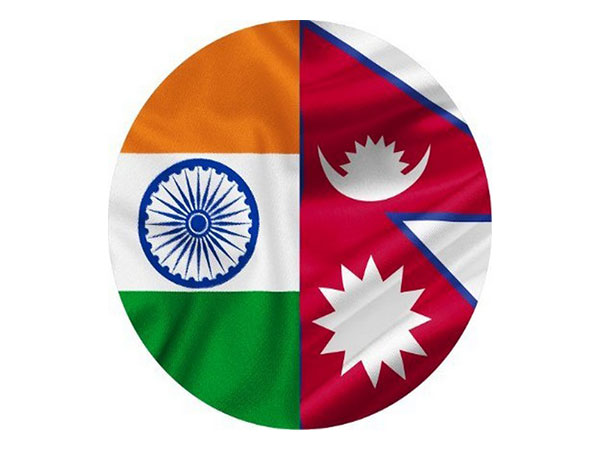Limpiyadhura, Lipulekh and Kalapani are Nepali territories: Nepal PM
Nepali Prime Minister Pushpa Kamal Dahal reiterated his stance that Limpiyadhura, Lipulekh, and Kalapani are integral parts of Nepal, however, India maintains that the three above-mentioned regions belong to it.

- Country:
- Nepal
By Binod Prasad Adhikari Nepali Prime Minister Pushpa Kamal Dahal reiterated his stance that Limpiyadhura, Lipulekh, and Kalapani are integral parts of Nepal, however, India maintains that the three above-mentioned regions belong to it.
PM Dahal reiterated the statement while responding to the queries in the House of Representatives (HoR), emphasising that the government is unequivocal in its position regarding these territories. "The Government of Nepal, the Sugauli Treaty signed between Nepal and India in 1816, Limpiyadhura, Lipulekh, and Kalapani, all the areas situated to the east of the Mahakali River, belong to Nepal. There is no doubt about this," Nepal PM Dahal said.
Notably, in May 2024, Nepal introduced a new Rs 100 currency note featuring disputed Indian territories, which was contested by External Affairs Minister S Jaishankar, who said that New Delhi's position is very clear, adding that Kathmandu unilaterally took some measures on their side. He also said that while both countries were having talks on boundary matters, by doing something unilaterally, Nepal is not going to change the on-ground reality.
"I saw that report. I have not looked at it in detail, but I think our position is very clear. With Nepal, we were having discussions about our boundary matters through an established platform. And then, in the middle of that, they unilaterally took some measures on their side. But by doing something on their side, they are not going to change the situation between us or the reality on the ground," said Jaishankar while interacting with professionals in Bhubaneswar on "Why Bharat Matters." Meanwhile, Nepal's PM Dahal said that during his visit to India, he held a discussion on the India-Nepal Treaty of Peace and Friendship of 1950, which forms the bedrock of the special relations that exist between India and Nepal.
"During the visit to India, during the meeting of Prime Ministers of Nepal and India, discussion about the 1950s and other treaties were discussed and agreed to resolve the border disputes as well as amend the treaties which need to be overseen through the established mechanisms," PM Dahal added. In the year 2020, Nepal amended the constitution, incorporating a new political and administrative map. The new map included the tri-junction of Limpiyadhura, Kalapani, and Lipulekh, which has remained a disputed area between Nepal and India.
Nepal's updated map, prepared to incorporate the missing territories, was submitted to the Ministry of Land Management by the Department of Survey, which claims to have taken an accurate scale, projection and coordinate system. It was publicly released on May 20, 2020, after the go-ahead signal from the Cabinet meeting on May 18, the same year. The department has collected a map drawn during the Treaty of Sugauli, another brought from London, receipts of payment of land revenues and the order issued by the then Prime Minister Chandra Shumsher as evidences that the land belongs to Nepal.
The earlier map issued in 2032 BS had left Gunji, Nabhi and Kuri villages, which now have been included in the revised map, adding on 335 square kilometres of land. Tensions between New Delhi and Kathmandu last year arose after the issuance of a political map by Nepal in mid-May, including the tri-junction, which India had earlier included in its November, 2019 map.
Diplomatic ties between the nations severed further after the inauguration of the road linking Kailash Mansarovar via Lipulekh on May 8, 2020, after which Nepal handed over a diplomatic note to India objecting to the move. Prior to the handover of the diplomatic note, Nepal also strongly objected to India's unilateral move to construct the road. Following a strong objection from Nepal, India's Ministry of External Affairs (MEA) had said the road going through Uttarakhand's Pithoragarh district "lies completely within the territory of India".
Nepal said it has "consistently maintained" that, as per the Sugauli Treaty (1816), "all the territories east of Kali (Mahakali) river, including Limpiyadhura, Kalapani and Lipu Lekh, belong to Nepal."Indian Defence Ministry had said the Border Road Organisation (BRO) in Uttarakhand has connected Kailash Mansarovar route to Lipulekh pass, which will provide connectivity to border villages and security forces. Following a strong objection from Nepal, India's Ministry of External Affairs (MEA) said the road going through Uttarakhand's Pithoragarh district "lies completely within the territory of India."
India has urged the Government of Nepal to refrain from such an unjustified cartographic assertion and respect India's sovereignty and territorial integrity. India has also asked Nepal to return to dialogue.(ANI)
(This story has not been edited by Devdiscourse staff and is auto-generated from a syndicated feed.)










